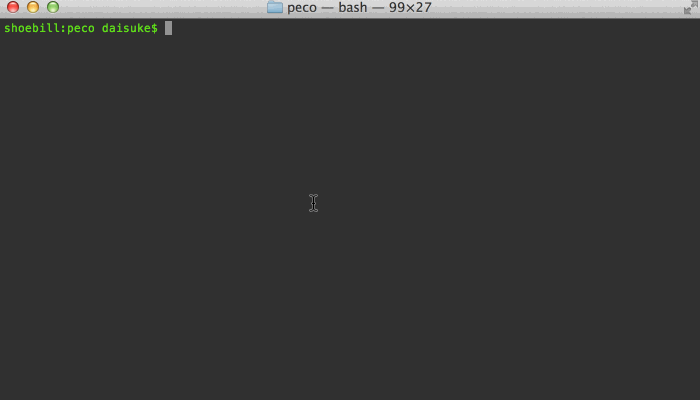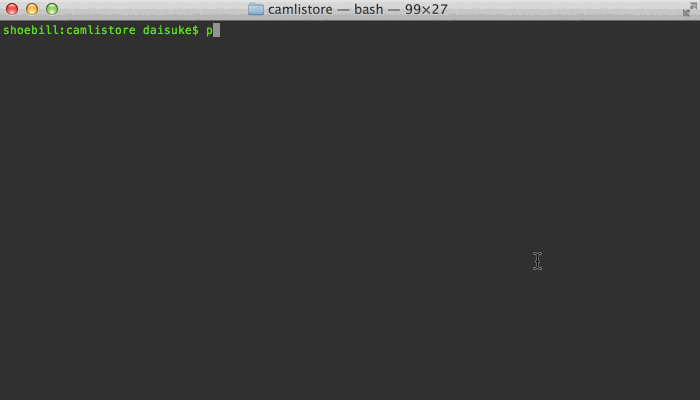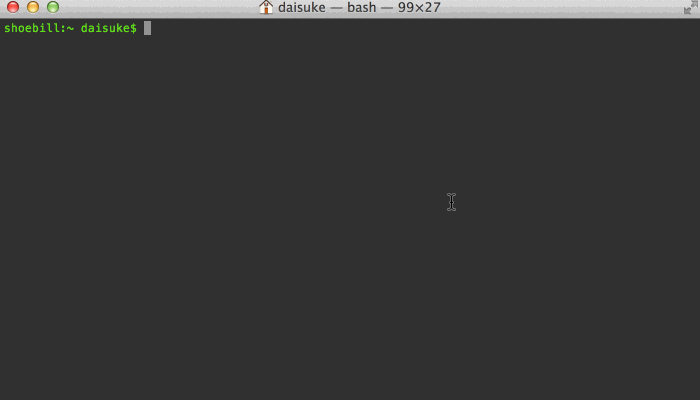 Documentation
¶
Documentation
¶
Index ¶
- func IsTty() bool
- func TtyReady() error
- func TtyTerm()
- type Config
- type Ctx
- func (c *Ctx) AddWaitGroup()
- func (c *Ctx) Buffer() []Match
- func (c *Ctx) DrawCh() chan []Match
- func (c *Ctx) DrawMatches(m []Match)
- func (c *Ctx) ExecQuery(v string)
- func (c *Ctx) Finish()
- func (c *Ctx) LoopCh() chan struct{}
- func (c *Ctx) NewFilter() *Filter
- func (c *Ctx) NewInput() *Input
- func (c *Ctx) NewView() *View
- func (c *Ctx) PagingCh() chan PagingRequest
- func (c *Ctx) QueryCh() chan string
- func (c *Ctx) ReadBuffer(input io.Reader) error
- func (c *Ctx) ReadConfig(file string) error
- func (c *Ctx) Refresh()
- func (c *Ctx) ReleaseWaitGroup()
- func (c *Ctx) Result() string
- func (c *Ctx) SetQuery(q []rune)
- func (c *Ctx) Terminate()
- func (c *Ctx) WaitDone()
- type Filter
- type Input
- type Keymap
- type KeymapHandler
- type KeymapStringKey
- type Match
- type PagingRequest
- type View
Constants ¶
This section is empty.
Variables ¶
This section is empty.
Functions ¶
Types ¶
type Ctx ¶
type Ctx struct {
ExitStatus int
// contains filtered or unexported fields
}
Ctx contains all the important data. while you can easily access data in this struct from anwyehre, only do so via channels
func (*Ctx) AddWaitGroup ¶
func (c *Ctx) AddWaitGroup()
func (*Ctx) DrawMatches ¶
func (*Ctx) PagingCh ¶
func (c *Ctx) PagingCh() chan PagingRequest
func (*Ctx) ReadConfig ¶
func (*Ctx) ReleaseWaitGroup ¶
func (c *Ctx) ReleaseWaitGroup()
type Keymap ¶
type Keymap map[termbox.Key]KeymapHandler
func (Keymap) Handler ¶
func (km Keymap) Handler(k termbox.Key) KeymapHandler
func (Keymap) UnmarshalJSON ¶
type KeymapHandler ¶
type KeymapHandler func(*Input, termbox.Event)
type KeymapStringKey ¶
type KeymapStringKey string
func (KeymapStringKey) ToKey ¶
func (ksk KeymapStringKey) ToKey() (k termbox.Key, err error)
type PagingRequest ¶
type PagingRequest int
const ( ToNextLine PagingRequest = iota ToNextPage ToPrevLine ToPrevPage )
 Source Files
¶
Source Files
¶
Click to show internal directories.
Click to hide internal directories.



